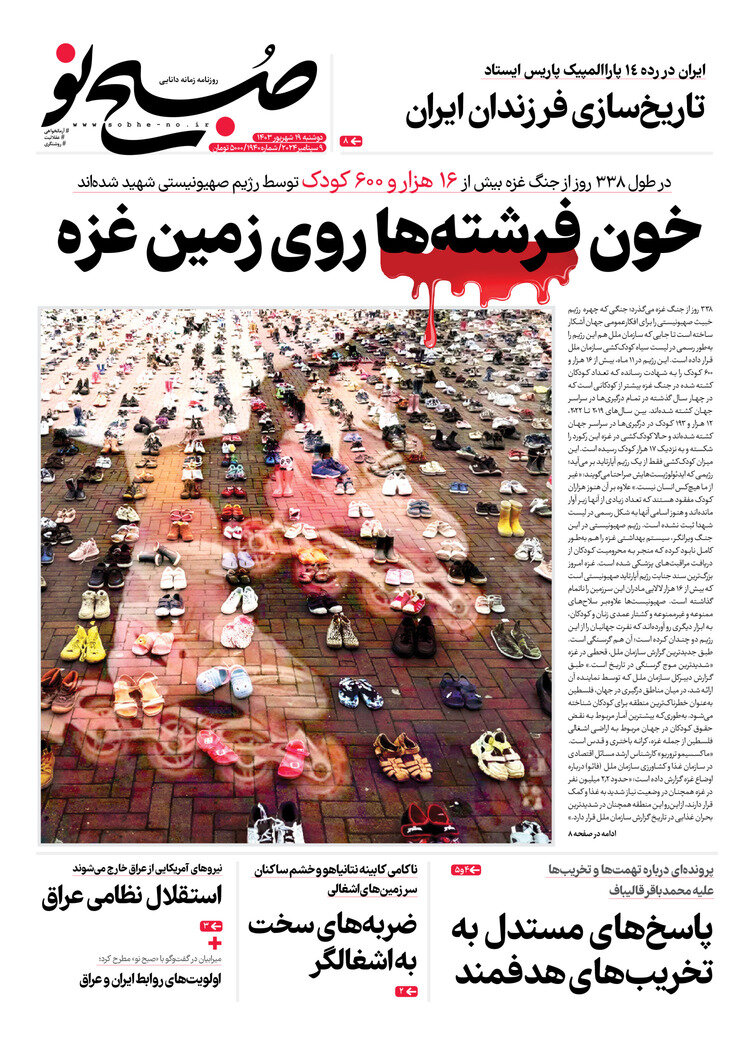Iran does not allow establishment of Zangezur Corridor

TEHRAN - In an interview with Mehdi Khorsand, an expert on Eurasia, Sobh-e-No discussed the issue of the so-called Zangezur Corridor.
It wrote: The position by top Iranian officials shows that Tehran does not allow the creation of the so-called Zangezur Corridor. This approach shows that the Islamic Republic of Iran has an active approach toward the developments in the South Caucasus. Since Iran has reacted diplomatically and held military drills in the northwestern borders, the possibility of creating the Zangezur Corridor is “unlikely”. Even if a route is created, Armenia should “own and manage it”. There is a possibility of a military attack on Armenia regarding the so-called corridor. In that situation, if Yerevan asks for Iran’s help and our national interests are threatened, Iran can back Armenia. Since we have direct interests, this support is justified under international law. Considering all these conditions, maybe the dream of creating the South Caucasus Corridor will not come true soon and Iran will be able to manage the situation at a level higher than the level of governments.
Shargh: Is the season of de-escalation coming?
In an analysis, Shargh pointed to the relations between Tehran and the IAEA in the new Pezeshkian government. The paper said: Now that the 14th government (sitting government) has taken office, it seems that one of the most important and urgent measures is to deal with the nuclear issue and to improve relations with the International Atomic Energy Agency. Although the new report of the Agency was against Iran, the right decision of Masoud Pezeshkian to meet with Rafael Grossi, the director general of the International Atomic Energy Agency, in the first step can send a positive signal to the international body and the Westerners that the new government in Tehran has a different view than before and it seeks de-escalation. For Pezeshkian, reaching an agreement and preventing a regional war is of vital importance. Although he talks about his government's economic plans in general terms, it will likely be the economy that will determine whether he can repair the widening gap between the Iranian people and the government.
Etemad: Zangezur Corridor is detrimental to Iran's strategic interests
In a note, Etemad coped with Iran's concern about possible establishment of the so-called Zangezur Corridor and said: Zangezur is one of the sensitive geopolitical and strategic issues for Iran. If this corridor is activated as a transportation route, it can deprive Iran of a part of these trade routes and reduce the strategic role of Iran in the transit of goods in the region. Also, creating and strengthening such a corridor can lead to the consolidation of the role of Turkey and the Republic of Azerbaijan in the region. This may change the balance of power in the South Caucasus to the detriment of Iran, because Iran, as one of the key actors in this region, has always sought to maintain influence and prevent the expansion of influence of its regional rivals, especially Turkey and Israel. If the Zangezur Corridor is activated as a main transit route between Azerbaijan and Nakhchivan to Turkey, Iran may lose part of its transit revenues. Iran is worried that the creation of this corridor will increase the influence of Turkey and Azerbaijan in the region and decrease the influence of Iran. This issue can lead to changes in the regional power balance, which will be detrimental to Iran's strategic interests.
Arman-e-Melli: A trip along with the security agreement
In a commentary, Arman-e-Melli discussed Pezeshkian's trip to Iraq. It wrote: Bilateral meetings with top Iraqi officials and signing cooperation documents and security documents are among the plans of the president of our country's trip to Iraq. It seems that there are some security differences between Iran and Iraq, which has sometimes caused Tehran to have no choice but to respond with missiles to the hiding places of separatist forces in Iraqi Kurdistan. Also, espionage and non-security actions of Israeli spies in this country and sometimes the existence of American bases in Iraq are among Tehran's security concerns. Therefore, it seems that in all these cases, Iran and Iraq can reach an understanding that will be accepted by the parties. We also hope that the president's visit to a foreign country like Iraq can send a positive message to the countries in the region. Therefore, it seems that a good situation has arisen for the new government to develop its relations with the countries of the region more quickly.

Leave a Comment